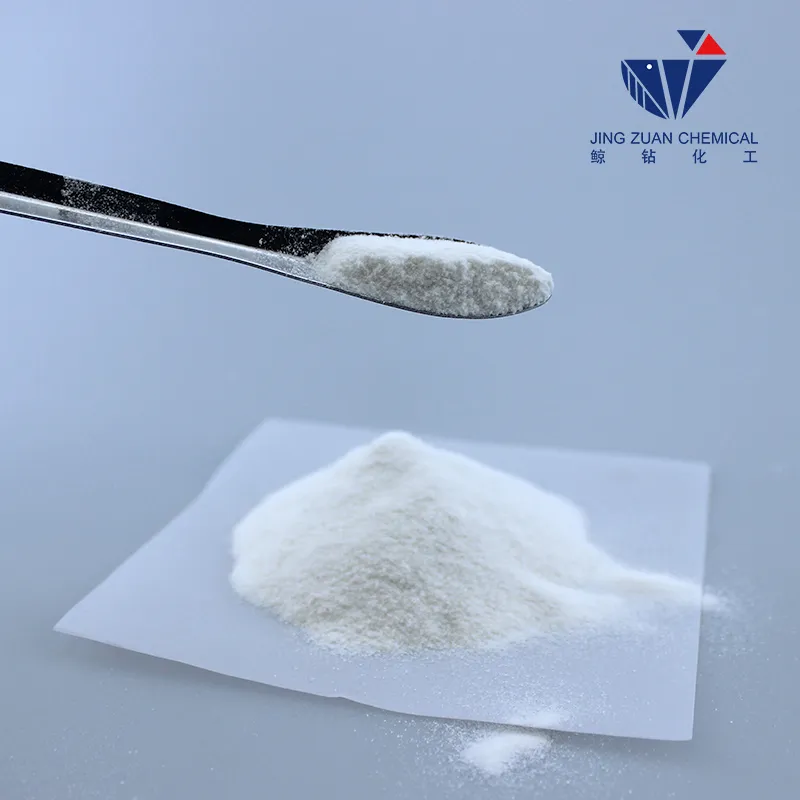
Nov . 27, 2024 02:14 Back to list
Viscosity Comparison of HPMC Grades for Various Applications and Their Properties
Understanding HPMC Viscosity and Its Applications
Hydroxypropyl Methylcellulose (HPMC) is a widely used cellulose ether in various industries, particularly in pharmaceuticals, food, and construction. One of the most critical attributes of HPMC is its viscosity, which significantly influences its performance in different applications. This article will explore the viscosity of HPMC, how it is measured, and its implications for various uses.
What is HPMC?
HPMC is a semi-synthetic polymer derived from cellulose. It is produced through the reaction of cellulose with propylene oxide and methyl chloride. Due to its unique properties, including solubility in water, thermal gelation, and film-forming capabilities, HPMC is favored in many formulations.
Viscosity of HPMC
Viscosity is a measure of a fluid's resistance to flow and is a crucial parameter that affects how HPMC behaves in various formulations. The viscosity of HPMC can be influenced by factors such as concentration, temperature, and the degree of substitution of the hydroxyl and methyl groups on the cellulose backbone.
The viscosity of HPMC is often expressed in terms of centipoise (cP) or mPa·s. HPMC products are available in a variety of viscosities—ranging from low to high—allowing formulators to select the appropriate grade for their specific application.
Measuring Viscosity
Viscosity can be measured using several methods, commonly involving rheometers or viscometers designed for different types of fluids. For HPMC, a common method is the use of a Brookfield viscometer, which provides measurements at various shear rates. The results from these measurements help in determining the correct viscosity grade required for a particular use, ensuring optimal performance.
Applications of HPMC Based on Viscosity
1. Pharmaceuticals
hpmc viscosity table

In the pharmaceutical industry, the viscosity of HPMC is crucial for formulating controlled-release drug delivery systems. High-viscosity grades are often used in tablet coatings and gel formulations to improve the mechanical strength and stability of dosage forms. Conversely, low-viscosity grades can enhance the flow properties of powders in capsule formulations.
2. Food Industry
In food applications, HPMC acts as a thickening agent, stabilizer, and emulsifier. The viscosity of HPMC affects the texture and mouthfeel of food products like sauces, dressings, and dairy products. High-viscosity HPMC is commonly used in gluten-free products, providing the desired texture and viscosity that mimic traditional formulations.
3. Construction
HPMC is also extensively used in the construction industry, particularly in tile adhesives, wall putties, and other building materials. Here, viscosity plays a crucial role in ensuring that the materials can be easily applied while providing the right amount of adhesion and workability. High-viscosity grades prevent sagging on vertical surfaces and improve the adhesion properties of the mortar.
4. Cosmetics
In cosmetics, HPMC is utilized for its thickening and film-forming properties. The viscosity of HPMC can affect the application and sensory characteristics of creams, lotions, and gels. Formulators often choose HPMC grades based on the desired viscosity and compatibility with other ingredients.
Conclusion
The viscosity of HPMC is a pivotal factor that determines its functionality across a wide array of industries. Understanding and measuring the viscosity of HPMC allows formulators to tailor products to meet specific performance criteria, enhancing the efficacy and appeal of the final products. With its versatility and adaptability, HPMC remains a valuable ingredient in traditional and innovative formulations, contributing to advancements in pharmaceuticals, food technology, construction, and cosmetics.
As the demand for high-performance, sustainable solutions continues to grow, HPMC’s unique properties and viscosity profiles will likely play an increasingly important role in shaping the future of various industries, ensuring that products meet the evolving needs of consumers.
-
Versatile Hpmc Uses in Different Industries
NewsJun.19,2025
-
Redispersible Powder's Role in Enhancing Durability of Construction Products
NewsJun.19,2025
-
Hydroxyethyl Cellulose Applications Driving Green Industrial Processes
NewsJun.19,2025
-
Exploring Different Redispersible Polymer Powder
NewsJun.19,2025
-
Choosing the Right Mortar Bonding Agent
NewsJun.19,2025
-
Applications and Significance of China Hpmc in Modern Industries
NewsJun.19,2025







